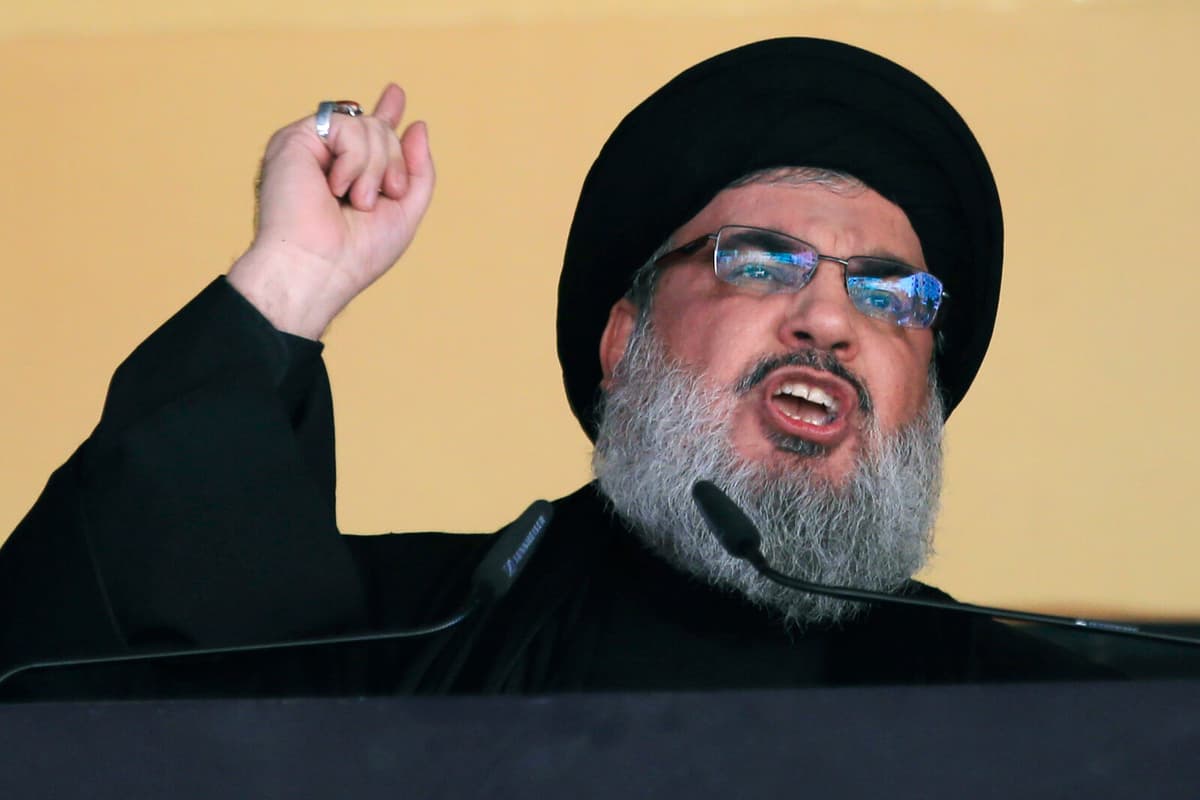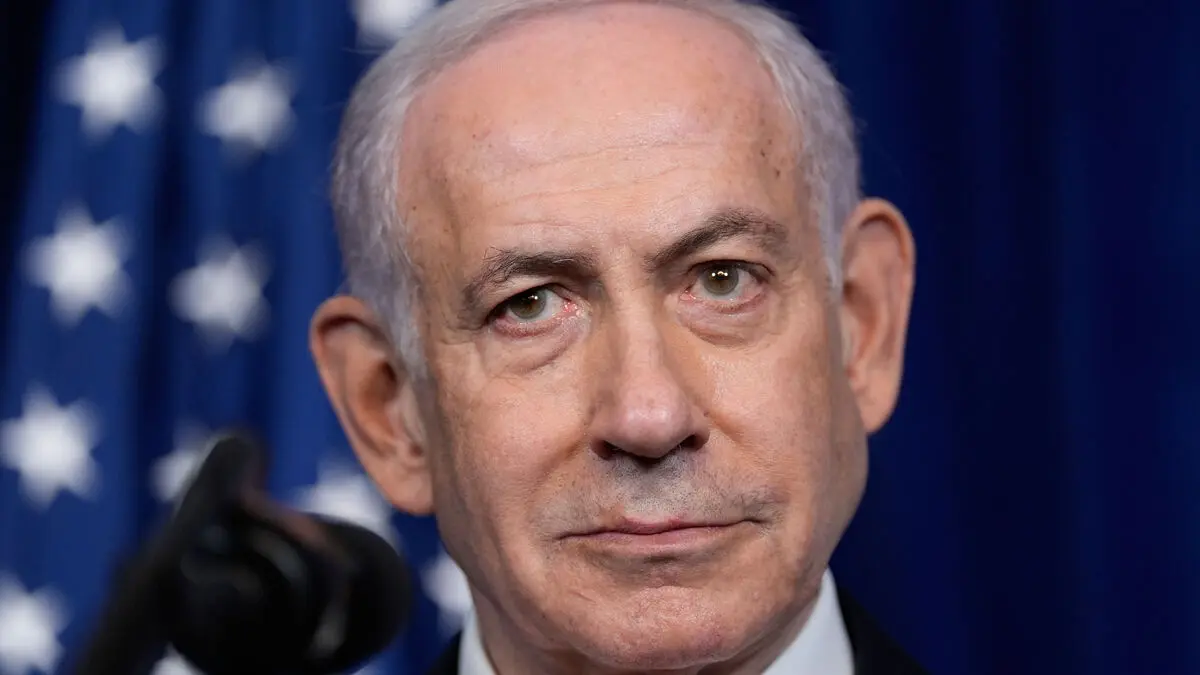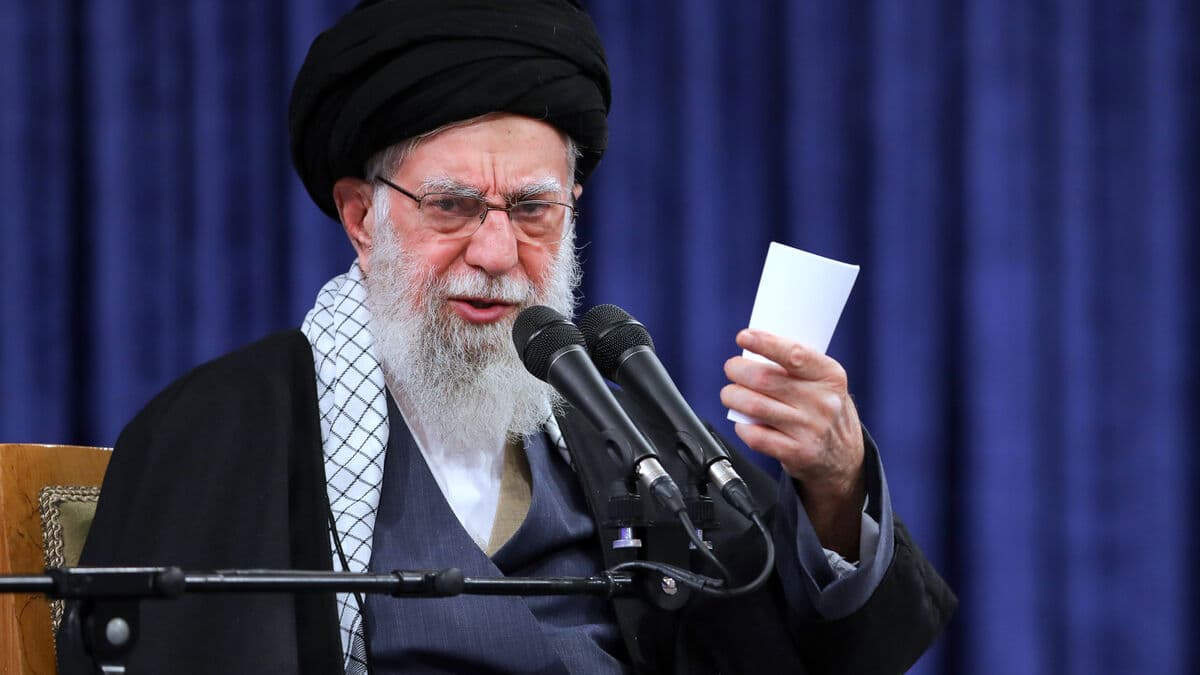The powerful militia leader was killed in intense Israeli attacks on buildings in Beirut's southern suburb of Dahieh on Friday evening.
To eliminate Nasrallah was a necessary condition to achieve the goals we set: to get the residents in the north to return safely to their homes and change the power balance in the region for several years to come, says Israel's Prime Minister Benjamin Netanyahu on Saturday evening in his first speech since the attack.
The Prime Minister also threatens Iran.
Nowhere in Iran or the Middle East is beyond Israel's long arm, he says.
USA strengthens defense positions
Hizbollah promises in its statement to continue the "holy war" against the enemy, but does not announce who will lead the movement forward, according to several media outlets.
A high-ranking general in the powerful Iranian Revolutionary Guard, Abbas Nilforoushan, was also killed in one of Israel's attacks in Lebanon in the past 24 hours, according to Iranian state media.
USA's President Joe Biden reiterates in a statement the USA's support for Israel's right to defend itself against Iran-backed terrorist groups, and says that he has given Defense Minister Lloyd Austin the task of "further strengthening the defense positions for the USA's military forces" in the area.
Lebanon has declared three days of national mourning.
In light of Nasrallah's death and after the recent targeted bombing attacks on southern Beirut, Israel's army chief Herzi Halevi says that anyone who threatens the country and its citizens will be attacked.
Ayatollah has been moved
The statement appears to be heeded by Israel's antagonist Iran, which is very close to Hizbollah. The country's supreme leader Ayatollah Ali Khamenei has been moved to a "safe place" and the security apparatus around him has been strengthened, reports the news agency Reuters with reference to sources in Tehran.
According to the sources, Iran's leadership is in contact with Hizbollah and other groups in the region. Discussions are underway on how to respond after Israel's deadly attacks.
Khamenei condemns in a statement what he calls "Israel's short-sighted policy" and "the massacre of the defenseless people in Lebanon", without mentioning the reports of Nasrallah's death. He urges all Muslims to unite to help the people of Lebanon and Hizbollah to "confront the occupying, cruel and evil regime", according to CNN.
Over 700 people have been killed in the recent Israeli attacks on Lebanon and hundreds of thousands of people have been displaced, reports AFP.
The Shia Muslim Hizbollah's goal is to eliminate Israel and create an Islamic state in Lebanon.
The organization has Iran's backing and is often called "a state within a state" due to its strong military and political power in the country.
According to Hizbollah, its military forces consist of around 100,000 soldiers, a figure that Israel strongly questions.
A large part of the movement's military strength comes from Iranian support. Hizbollah conducts welfare activities but also has a military branch that carries out attacks on Israel and terrorist activities.
The movement as a whole has been labeled a terrorist organization by several countries, while others have chosen to only label its armed branch as such.






